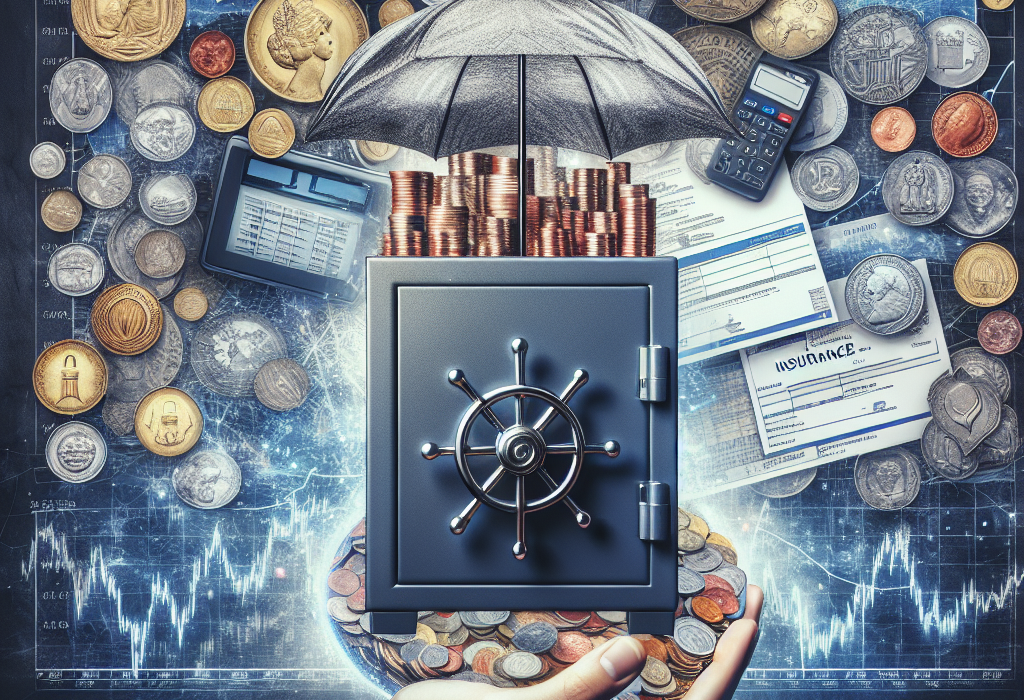Economic uncertainty can emerge from various sources, including market volatility, inflation, political instability, and global events such as pandemics or geopolitical conflicts. Protecting your finances in such times is crucial to ensure stability and long-term well-being. Here are some strategies to safeguard your financial health during periods of economic uncertainty.
1. Build an Emergency Fund
One of the most impactful steps in protecting your finances is creating a robust emergency fund. Ideally, this fund should cover three to six months of living expenses. By having a safety net, you can handle unexpected expenses without resorting to high-interest debt or liquidating long-term investments.
Tips:
- Start small and gradually increase your savings.
- Automate transfers to your emergency fund.
- Keep the fund in a high-yield savings account for easy access and growth.
2. Diversify Your Investments
Diversification is key to reducing risk in your investment portfolio. By spreading your investments across various asset classes, such as stocks, bonds, real estate, and commodities, you can mitigate the impact of a downturn in any single sector.
Tips:
- Invest in a mix of domestic and international assets.
- Consider index funds or exchange-traded funds (ETFs) for broad market exposure.
- Regularly review and rebalance your portfolio to maintain your desired asset allocation.
3. Reduce High-Interest Debt
High-interest debt, such as credit card balances, can be particularly burdensome during economic uncertainty. Reducing or eliminating this debt can free up resources and reduce financial stress.
Tips:
- Focus on paying down debts with the highest interest rates first (the avalanche method).
- Consider consolidating debt with a lower-interest loan.
- Avoid taking on new high-interest debt unless absolutely necessary.
4. Maintain a Budget
A well-constructed budget can help you manage your finances effectively, especially during economic volatility. By tracking your income and expenses, you can identify areas to cut back and ensure you are living within your means.
Tips:
- Use budgeting tools or apps to monitor your spending.
- Prioritize essential expenses and reduce discretionary spending.
- Revisit and adjust your budget as circumstances change.
5. Stay Informed and Flexible
Keeping informed about economic trends and financial news can help you make better decisions. However, it’s equally important to remain flexible and adapt your strategies as needed.
Tips:
- Follow reputable financial news sources and seek advice from trusted financial advisors.
- Avoid making emotional investment decisions based on market fluctuations.
- Be open to adjusting your financial goals and plans in response to new information.
6. Invest in Yourself
Enhancing your skills and knowledge can provide a buffer against economic uncertainty. Whether through formal education, certifications, or self-learning, investing in yourself can boost your employability and potentially increase your income.
Tips:
- Identify and acquire skills that are in demand in your industry.
- Consider side hustles or gig work to diversify your income streams.
- Network with professionals in your field to stay updated on opportunities.
7. Plan for Long-Term Goals
While it’s essential to address immediate financial concerns, don’t lose sight of your long-term goals, such as retirement or home ownership. Continue to contribute to retirement accounts and other long-term investments.
Tips:
- Take advantage of employer-sponsored retirement plans, especially if they offer matching contributions.
- Consider tax-advantaged accounts like IRAs and 529 plans.
- Maintain a long-term perspective and avoid panic selling during market downturns.
Conclusion
Economic uncertainty is an inevitable part of the financial landscape, but with proactive measures, you can protect your finances and maintain stability. By building an emergency fund, diversifying investments, reducing high-interest debt, maintaining a budget, staying informed, investing in yourself, and planning for long-term goals, you can navigate through uncertain times more confidently. Remember, the best defense against economic uncertainty is a well-rounded financial strategy that prepares you for both the expected and the unexpected.

